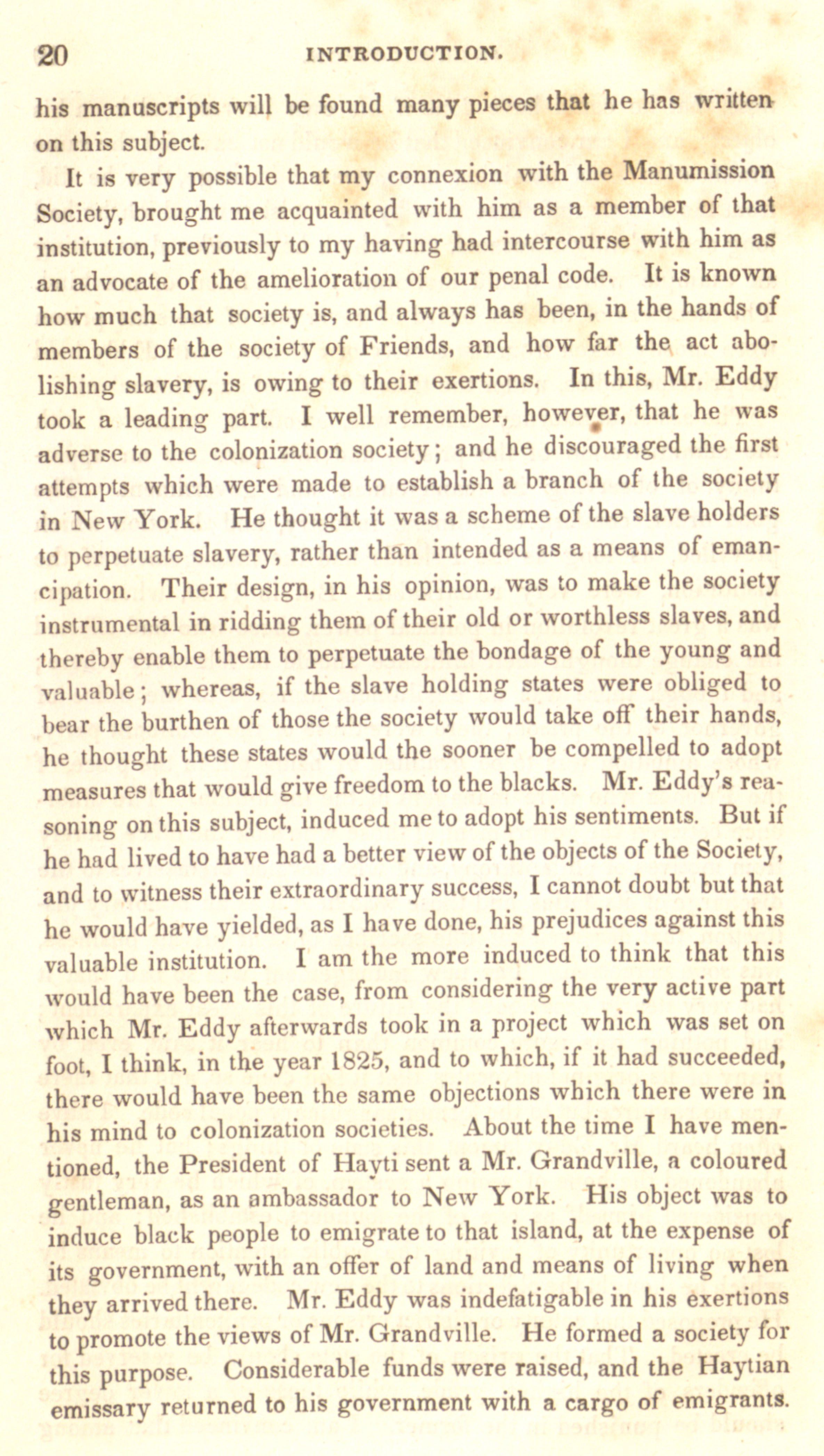his manuscripts will be found many pieces
that he has written
on this subject.
It is very possible that my connexion with the Manumission
Society
Organization Information
institution, previously to my having had intercourse with him as
an advocate of the amelioration of our penal code. It is known
how much that society is, and always has been, in the hands of
members of the society of Friends, and how far the act abo-
lishing slavery, is owing to their exertions. In this, Mr. Eddy
Person Information
took a leading part. I well remember, however, that he was
adverse to the colonization society; and he discouraged the first
attempts which were made to establish a branch of the society
in New York
Place Information
to perpetuate slavery, rather than intended as a means of eman-
cipation. Their design, in his opinion, was to make the society
instrumental in ridding them of their old or worthless slaves, and
thereby enable them to perpetuate the bondage of the young and
valuable; whereas, if the slave holding states were obliged to
bear the burthen of those the society would take off their hands,
he thought these states would the sooner be compelled to adopt
measures that would give freedom to the blacks. Mr. Eddy's
Place Information
soning on this subject, induced me to adopt his sentiments. But if
he had lived to have had a better view of the objects of the Society,
and to witness their extraordinary success, I cannot doubt but that
he would have yielded, as I have done, his prejudices against this
valuable institution. I am the more induced to think that this
would have been the case, from considering the very active part
which Mr. Eddy
Person Information
foot, I think, in the year 1825, and to which, if it had succeeded,
there would have been the same objections which there were in
his mind to colonization societies. About the time I have men-
tioned, the President of Hayti
Place Information
Person Information
gentleman, as an ambassador to New York
Place Information
induce black people to emigrate to that island, at the expense of
its government, with an offer of land and means of living when
they arrived there. Mr. Eddy
Person Information
to promote the views of Mr. Grandville
Person Information
this purpose. Considerable funds were raised, and the Haytian
emissary returned to his government with a cargo of emigrants.

